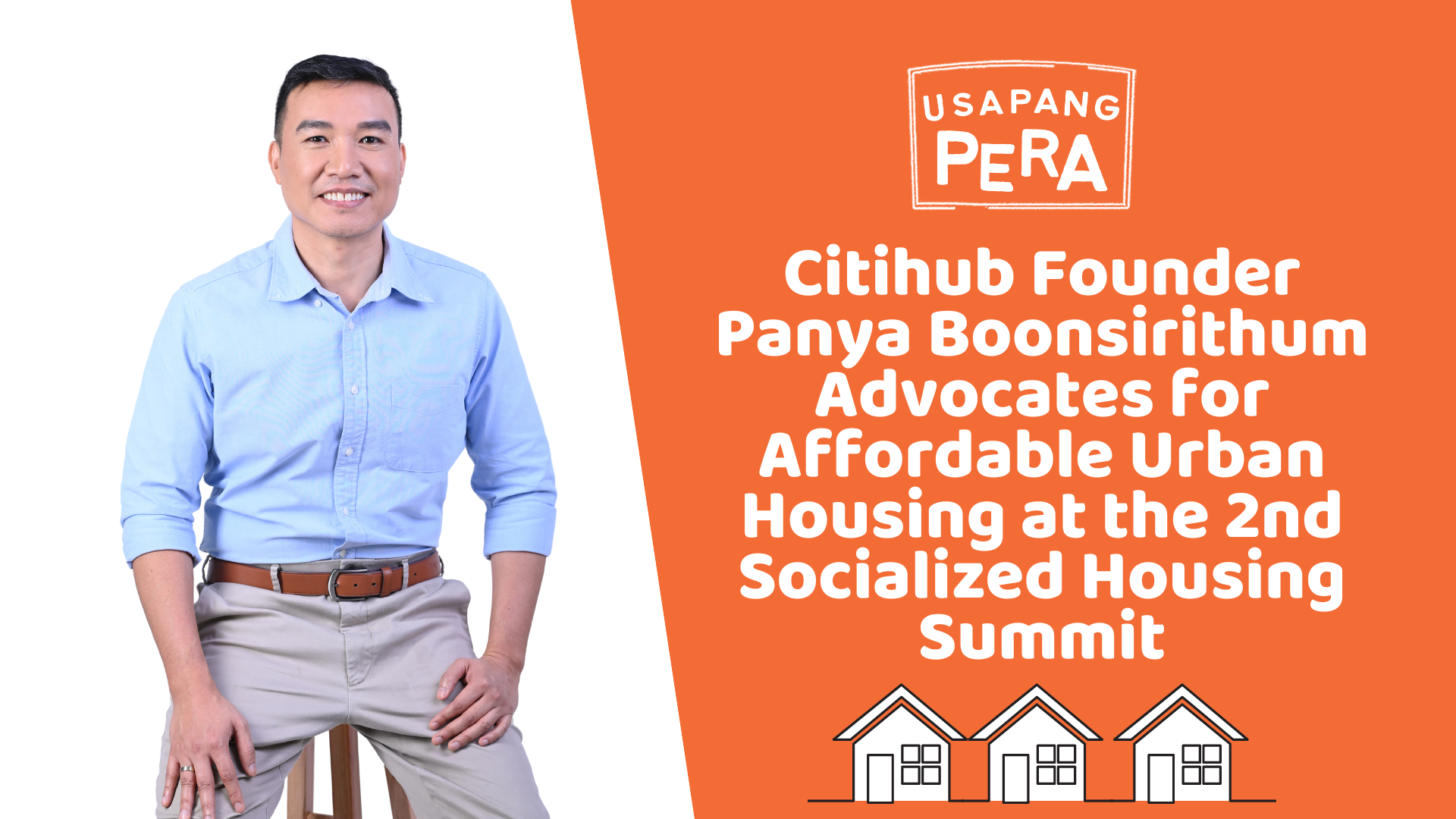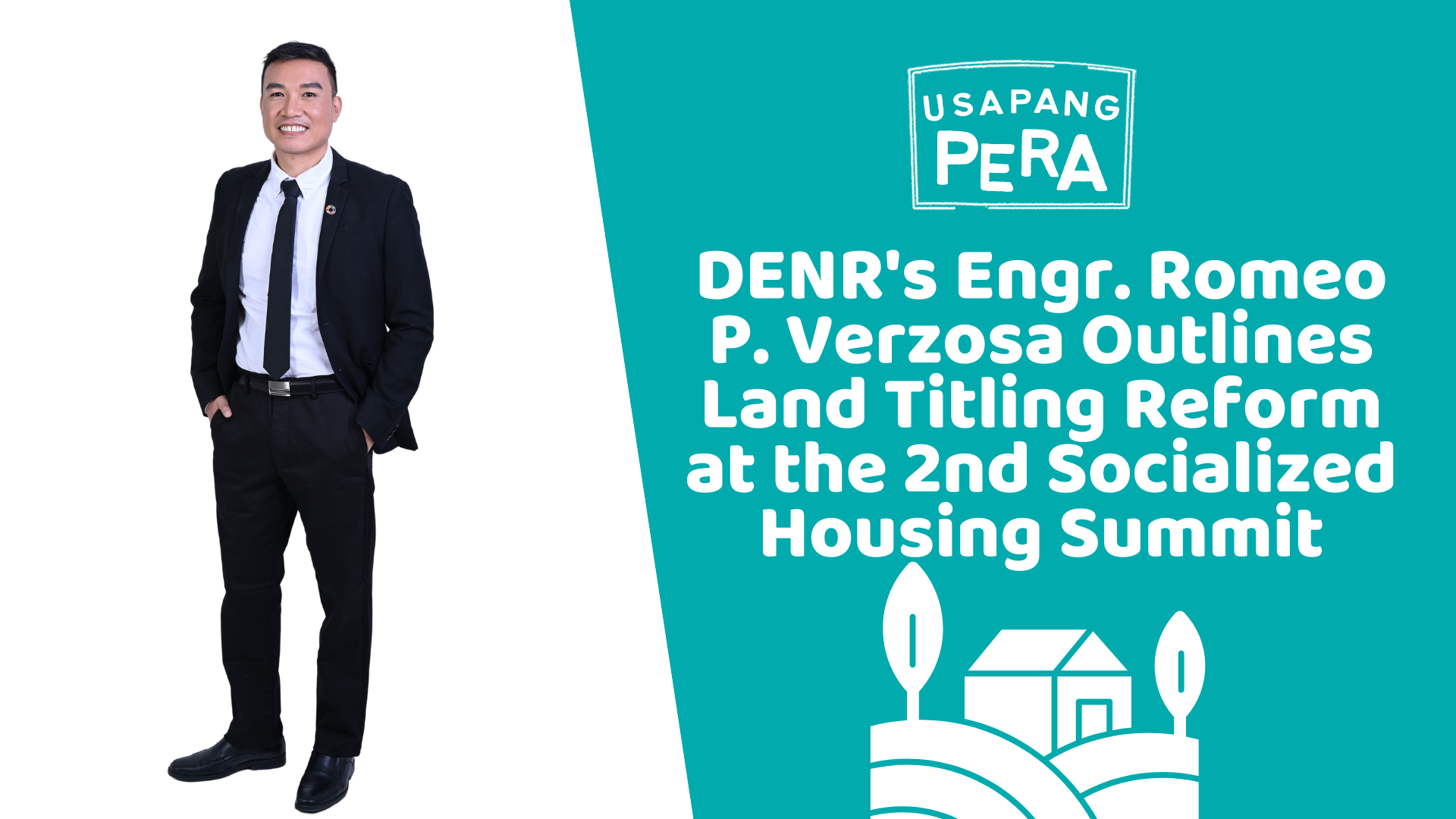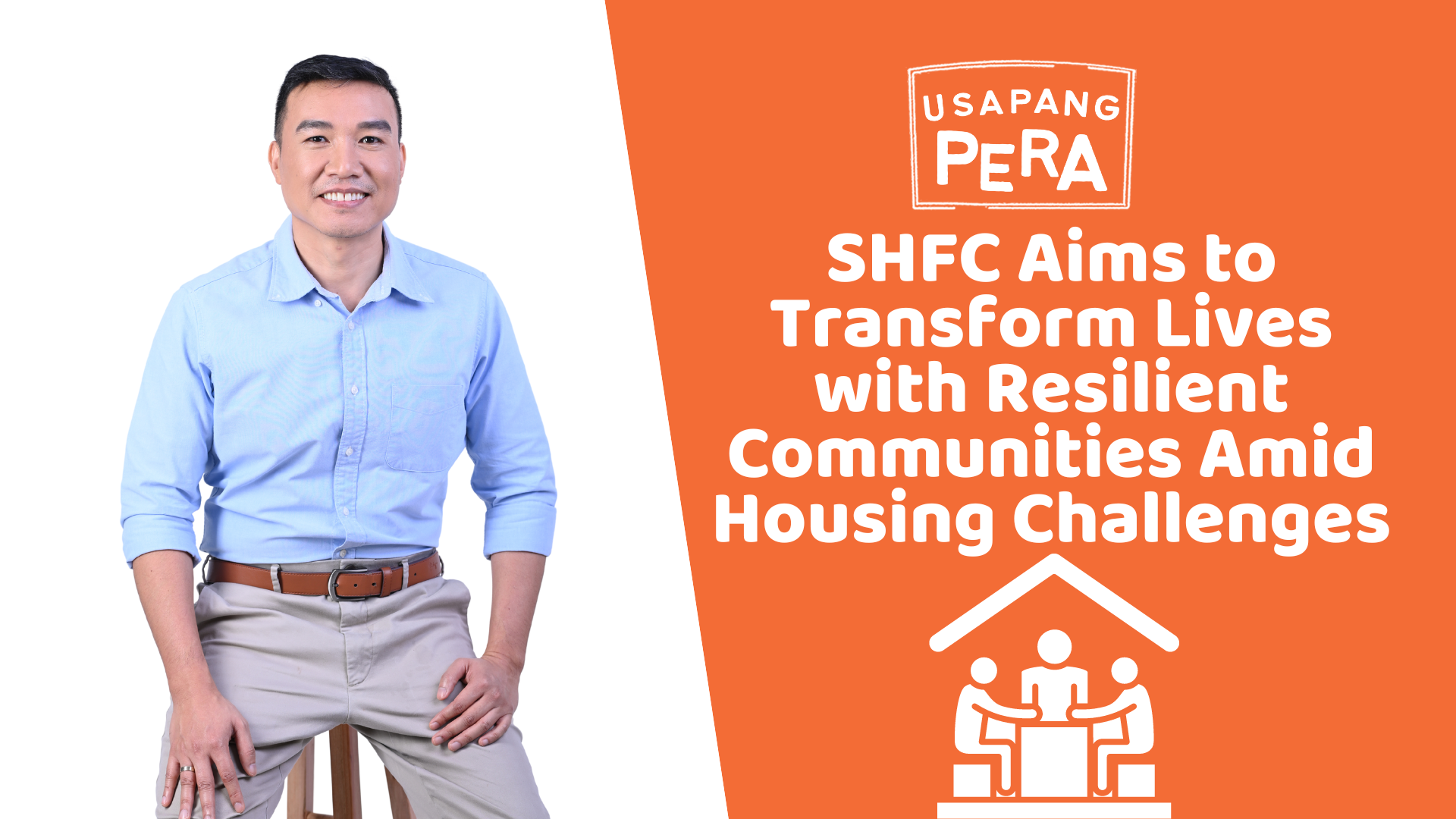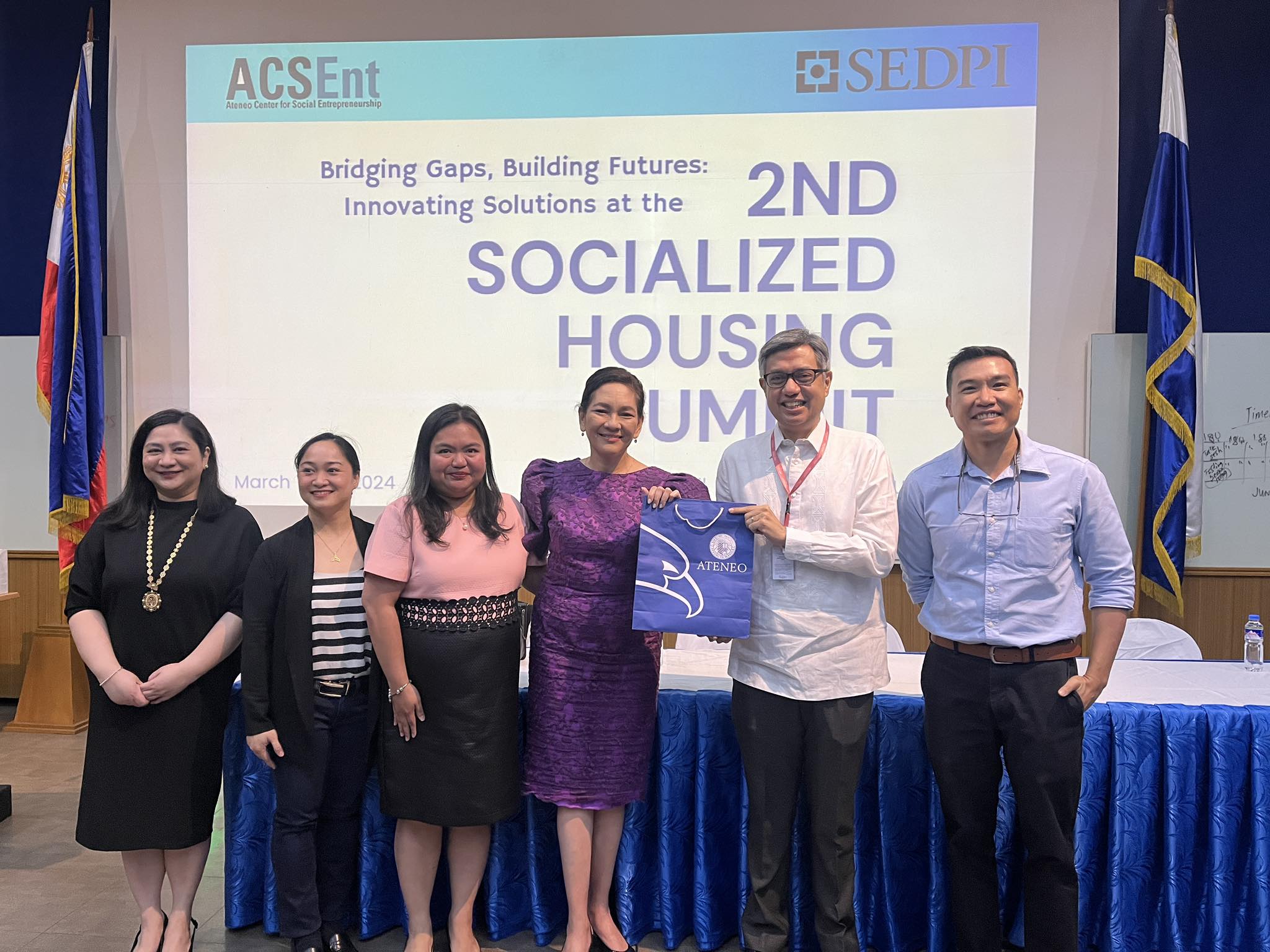Tag: housing solutions
-

Citihub Founder Panya Boonsirithum Advocates for Affordable Urban Housing at the 2nd Socialized Housing Summit
In a striking presentation at the 2nd Socialized Housing Summit, held on March 18-19, 2024, at the Ateneo de Manila University, Panya Boonsirithum, the founder of Citihub, shared his visionary approach to addressing Metro Manila’s housing crisis. Organized by the Ateneo Center for Social Entrepreneurship (ACSent) and Social Enterprise Development Partnerships Inc. (SEDPI), the summit…
-

DENR’s Engr. Romeo P. Verzosa Outlines Land Titling Reform at the 2nd Socialized Housing Summit
The second day of the 2nd Socialized Housing Summit, co-organized by the Ateneo Center for Social Entrepreneurship (ACSent) and Social Enterprise Development Partnerships Inc. (SEDPI) on March 18-19, 2024, at Ateneo de Manila University, featured Engr. Romeo P. Verzosa, Assistant Director of the DENR – Land Management Bureau. His presentation provided an essential overview of…
-

SHFC Aims to Transform Lives with Resilient Communities Amid Housing Challenges
At the 2nd Socialized Housing Summit held at Ateneo de Manila University, Atty. Junefe G. Payot from the Social Housing Finance Corporation (SHFC) presented an approach to combat the Philippines’ housing backlog through resilient community-driven projects. Amidst a critical period where the production of socialized housing units plummeted to an all-time low in 2023, SHFC’s…
-

Senator Risa Hontiveros Advocates for Innovative Social Housing Solutions at the 2nd Socialized Housing Summit
Manila, Philippines – At the 2nd Socialized Housing Summit held at Ateneo de Manila University, Senator Risa Hontiveros delivered a compelling speech, outlining the dire need for innovative and inclusive solutions to the Philippines’ housing crisis. Addressing a gathering of developers, microfinance institutions, academes and housing advocates, Senator Hontiveros emphasized the dream of every Filipino…